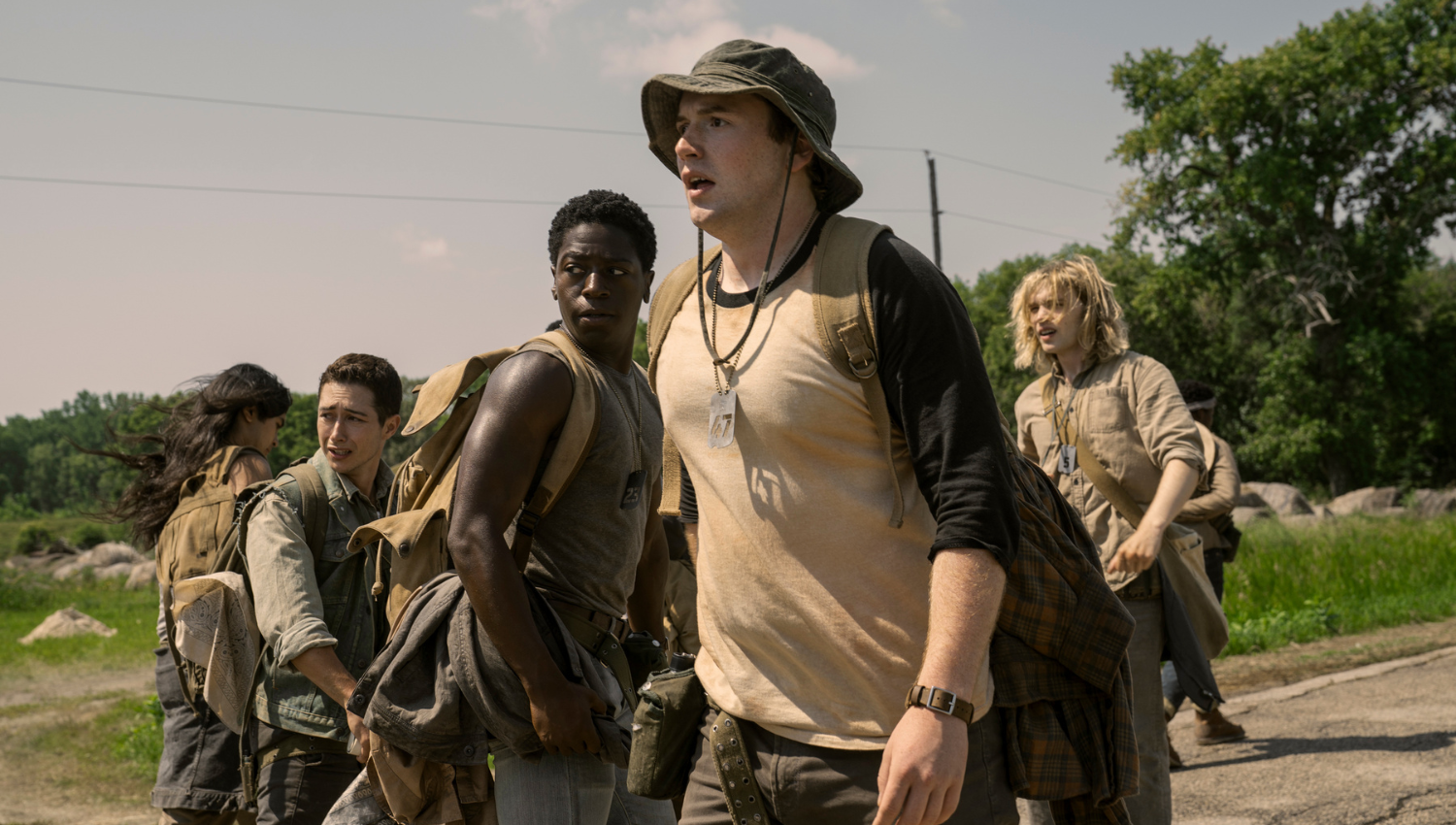
The Long Walk
James Brown
Francis Lawrence turns Stephen King’s cruel parable into a marching drumbeat you feel in your shins. The Long Walk never rushes, yet the movie never idles. It advances with a grim cadence, each mile a verdict. We travel beside Ray Garraty, played by Cooper Hoffman, and a pack of kids priced like cattle for a state spectacle. Sunlight blanches skin. Asphalt cooks resolve. Sneakers announce hope, then betrayal.
Lawrence directs with hard clarity. He favors the horizon line and the human face. The camera keeps its promise: stay with the walkers, never look away. You feel the geometry of rules more than their lore. Keep moving. Four warnings. Then a rifle cracks the air like punctuation. The world builds itself from breath and blister. It’s simple, which is the point, and the point hurts.
Hoffman carries the film with a stubborn, unshowy magnetism. He listens, then answers with gait and grit. David Jonsson (“Industry“), as the quicksilver McVries, brings edge and banter, a survival spark that feels like friendship until it doesn’t. The ensemble fills the road with small religions. They barter pain for story. They trade swagger for witness. Boys learn how quickly boys become voices, and voices become silence.
You expect spectacle, but the movie chooses intimacy. Sound design leads the procession: the soft slap of rubber, a wheeze, the spit of distant applause. Violence arrives clean, almost bureaucratic. That restraint reads as an accusation. We sense a nation that launders cruelty with rules and a marching band. Lawrence trusts the frame more than speeches, and the restraint pays off.
“The camera keeps its promise: stay with the walkers, never look away.”
King’s dystopia always wore our present like a name tag. The film keeps that tag legible without underlining it. Media cameras roll. Corporate signage flashes. Meanwhile, the landscape stays beautifully indifferent. Big sky. Long road. Small mercy. The metaphor lands because the feet continue to.
The screenplay gives every boy a stripe of identity without flattening the mystery of why he volunteered. When the truth slips out, it rarely redeems anyone. That honesty feels bracing. The third act tightens without theatrics. Lawrence stages the finish as an exhale you have to earn. It lingers as a question rather than a triumph.
The Long Walk also respects fatigue as narrative tempo. Scenes stretch just far enough to make you notice your own posture. When a boy jokes, the laugh lands like a blessing. When a boy cries, the cut holds, and you look away first. The film invites that complicity. It doesn’t lecture. It accumulates. By the time a crowd erupts, you hear the cheer as weather, not approval. Endurance becomes the argument, and the argument is terrifyingly persuasive and necessary.
Final Thought
Lawrence trades spectacle for toil, sweat, tears, and blister. The rules feel tidy; the deaths do not.
